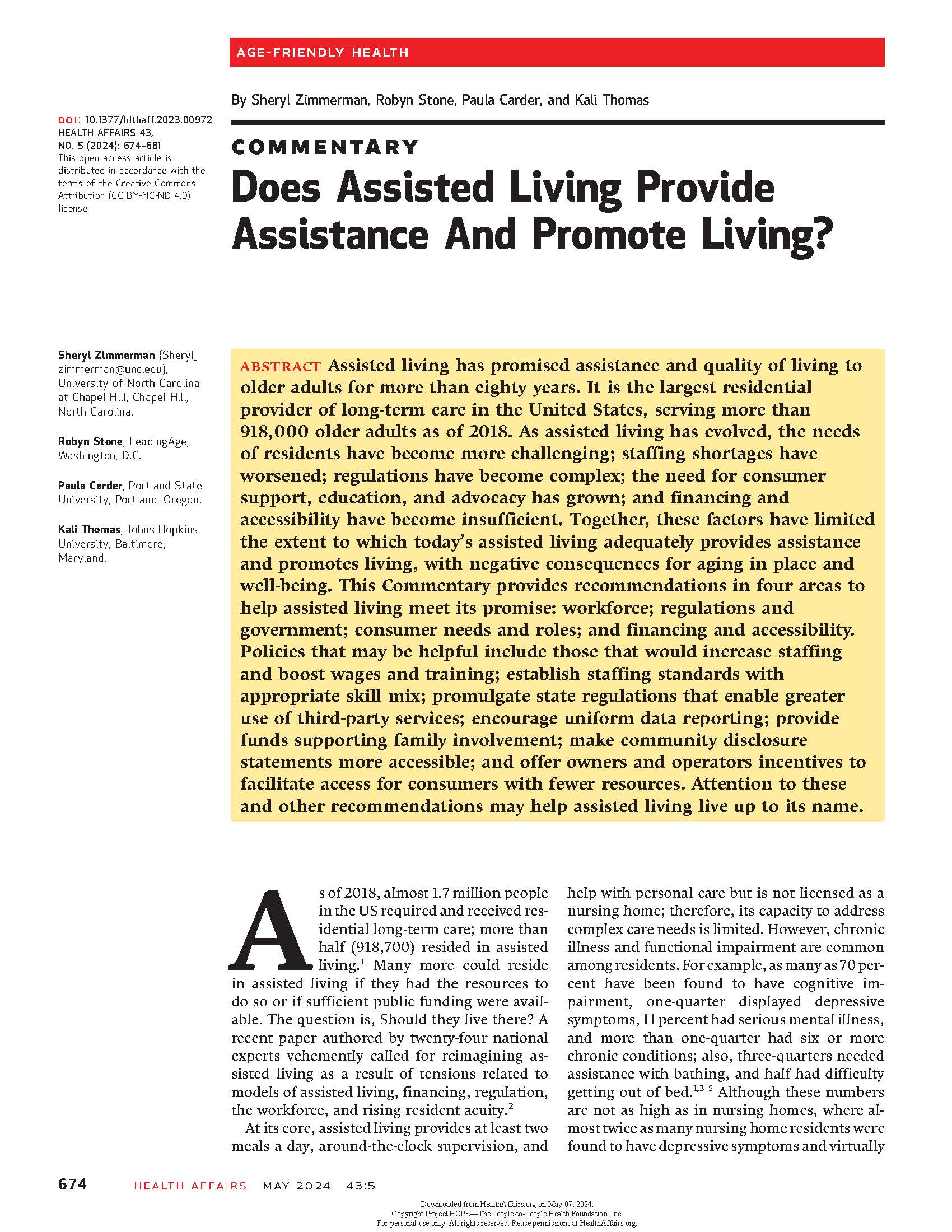Individual state approaches to assisted living/residential care (AL/RC)
licensing and oversight in the United States result in different practice
standards and requirements, including psychotropic medication use. We examined
170 psychotropic medication deficiency citations issued to 152 Oregon AL/RC
settings from 2015 to 2019. Applied thematic analysis resulted in the following
themes: (1) documentation issues are primarily responsible for noncompliance,
(2) unclear parameters place direct care workers in a role paradox, and (3)
there is a persistent disconnect about when to seek qualified expertise before
requesting psychotropic medications. AL/RC-specific mechanisms for medication
prescription and administration are necessary to improve the structure and
processes of care. Policymakers might consider how regulations unintentionally
incentivize task-oriented versus person-centered care practices.

Center for Excellence in Assisted Living CEAL@UNC
Advancing the well-being of the people who live and work in assisted living through research, practice, and policy.

